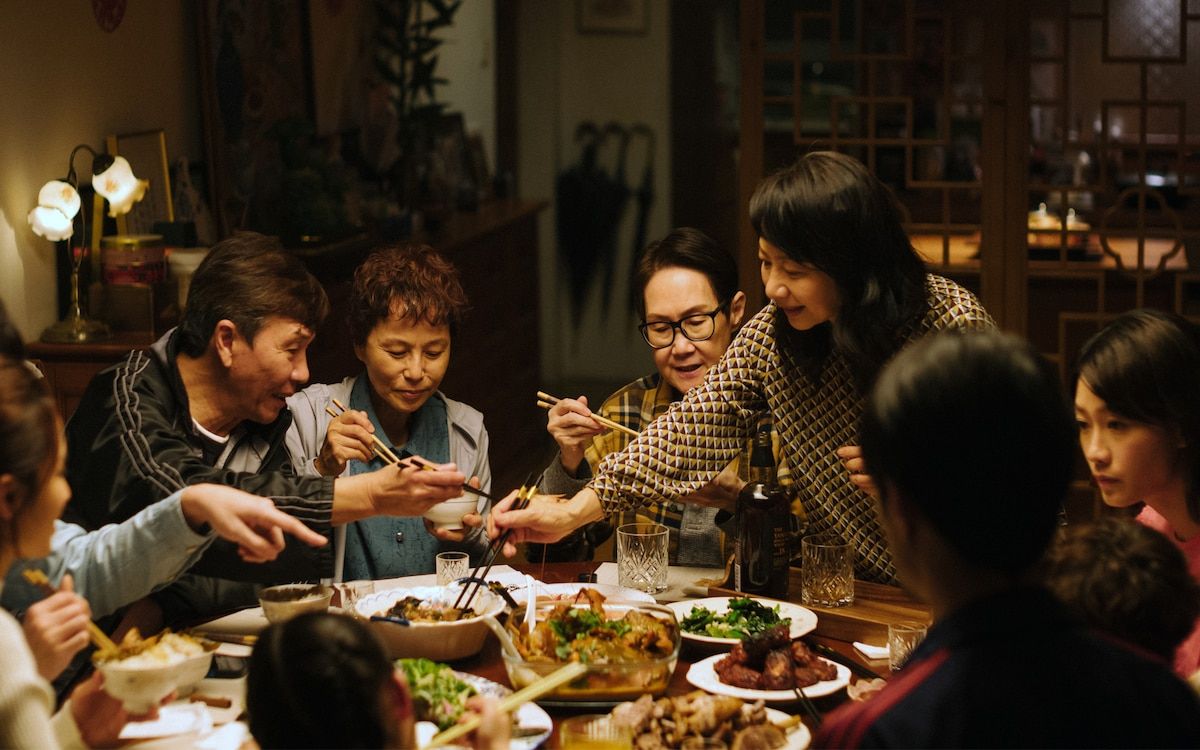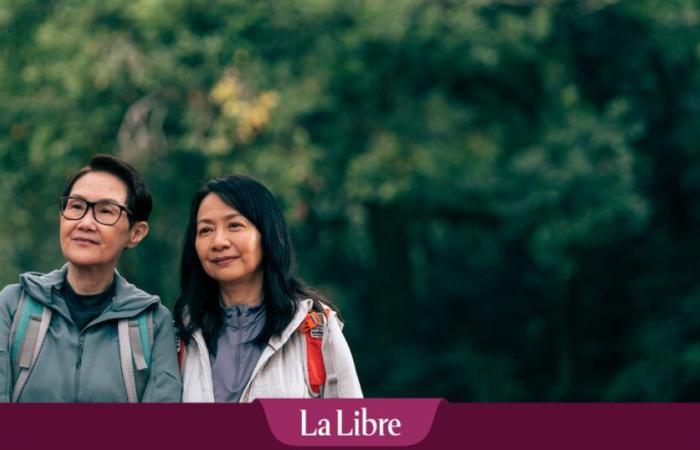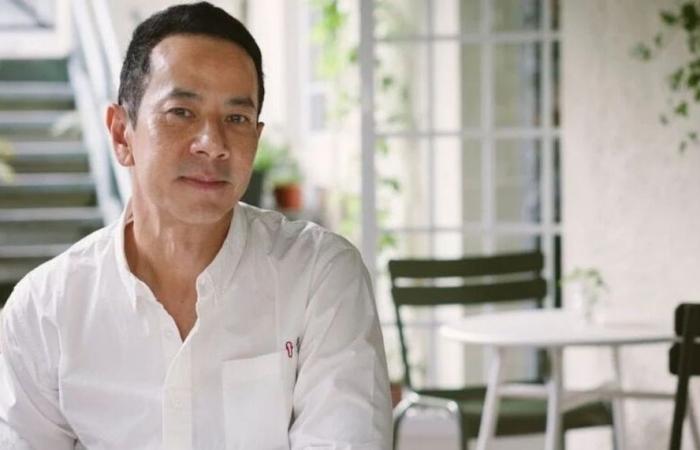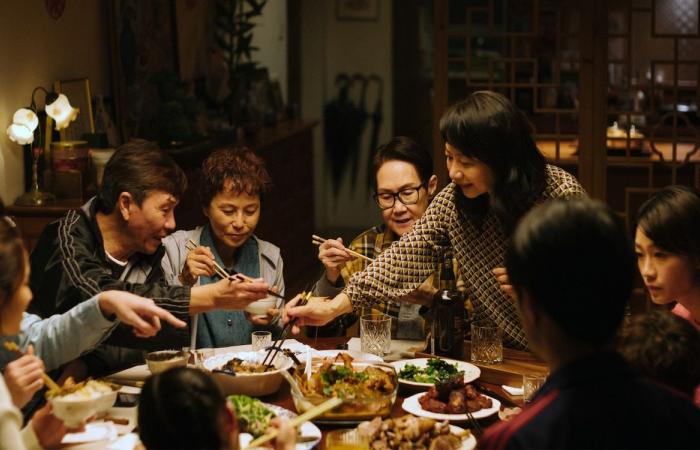gullIn Hong Kong, if you’re stuck in poverty, it’s very difficult to get out…
In the film, there is no direct homophobia from the family of the deceased. Everything revolves around the question of money, inheritance…
If they were openly homophobic, a large portion of the public would say: “Okay, she’s the heroine and they’re the bad guys.” He would look at it in a detached way, like a Star Wars. But I want the public to also be able to understand them, identify with them, sympathize with them and then be able to ask questions. If I were in their shoes, would I let this woman stay in her apartment or would I feel entitled to get this property back? During screenings, some tell me that they totally identify and that their reaction is just…
Is it also a film about social inequalities in Hong Kong? If the family does this, it’s because Angie and Pat were rich, not her…
In Hong Kong, real estate prices are so high that if you’re in your twenties and just finished college, there’s really no way you can buy an apartment and start a business. a home without help from your family. You are also trapped and this will also affect your romantic relationships. Hong Kong is very rich, many people have a lot of money. But, as in many other societies, the rich always get richer and the poor get poorer. If you’re stuck in poverty, it’s very difficult to get out…
What is the situation in Hong Kong today? Is homosexuality still taboo?
No. Hong Kong is open. I’ve been organizing the Hong Kong Lesbian and Gay Film Festival since 2000. I’ve really seen the evolution. At first, people would sneak in or wait until after dark to come see a movie. Today, they hang out in the hall, laughing, talking. Our parties are very popular. Society has really changed over the last 20 years, thanks in part to the Internet. Visibility is much stronger. And many countries have now legalized same-sex marriage. So we say to ourselves that perhaps it is time to change too.
Is the situation different in China?
Very different. My film may not be shown there, nor any LGBTQ film. In the past, there was a government-sanctioned organization called LGBTQ Community Parents. She supported the parents, who are the “victims” of this “disease”, but not the community itself. And even that one officially authorized group is gone now. So yes, it’s difficult. It’s not illegal to be gay in China, but society views it very negatively and there’s no right to it. If you come out at work, you can be fired… But Hong Kong is autonomous from China… In the local LGBTQ community, there are powerful activists. Some went overseas, got married, then returned to Hong Kong and sued the local government for failure to recognize same-sex marriage. And they won last September. The Hong Kong government must recognize same-sex marriage performed overseas. However, the government appealed. The hearing will take place at the end of November… (The Supreme Court finally ruled in favor of people of the same sex in inheritance cases, Editor’s note.)
Do you think that gay marriage could be possible in Hong Kong in the future?
-If we get the same verdict as last September, then, yes, that would be a positive step forward. But that doesn’t mean we’ll get all the rights. We will call this civil partnership, but it will not guarantee inheritance rights…. It could still just be an empty shell.
All of your films focus on LGBTQ issues. Would you consider yourself an activist filmmaker?
Yes, clearly. That’s part of the reason I wanted to make films, when I saw Best man (by Ang Lee in 1993, Editor’s note)which was a huge success. Before, I had always thought that Asian LGBT issues were very much in the minority. But I saw that it could interest people. I said to myself that maybe I could try to make films that represent us. Because at that time, there wasn’t a lot of representation of Asians in Western media. And let’s not talk about LGBT representation…
More than a setting, Hong Kong is a real character in the film. How did you approach the city as a filmmaker?
Hong Kong is the main character of the film, because we talk about its legal system, the lack of protection for the LGBTQ community. But one of the main problems is also the lack of space in Hong Kong, where everything has to be built vertically. To the artistic director and the director of photography, I clarified that I wanted to show this stacking, this verticality. Even in the columbarium, where people place the ashes of their loved ones, everything is piled up. While Pat wanted to just be scattered in the ocean, she finds herself in this little niche. This represents the way people live in Hong Kong, in small holes. We wanted to show this lack of space, physical, but also this lack of space to breathe, to think, to be oneself…


At the beginning of the film, you delicately film the intimacy of this couple, in particular the way they have breakfast together…
To show that the two women have lived together for so long, you have to show intimacy and familiarity, not just passion, hugs… Being with someone and being relaxed despite the silence, it’s really the most intimate as it can be. They don’t kiss, like in an American series. Instead, they are synchronous, because it is their ritual every morning. They don’t need to look at each other and smile. To the actresses, when we were working on the scene, I just said: let’s improvise a breakfast scene. Petra, who plays Angie, took a toothpick and gave it to Maggie, who plays Pat. Only then do they start talking about it… I found it interesting because, when they were young, they probably didn’t need it. But as we get older, the teeth are further apart… I told myself that it was something everyday, but which also represented aging. It had to be integrated…
At the end of the film, Pat and Angie kiss. Was it important to show two women kissing on screen?
Originally in the script, they were supposed to give each other a little kiss. On the first take, it was already very good. For safety, we made another one. At this point in the filming, the actresses knew each other really well and they started kissing more passionately. We said to ourselves: why not, if the actresses felt this naturally? So we decided to use it. Hong Kong audiences need to see this, so they don’t think it’s just two sisters…






